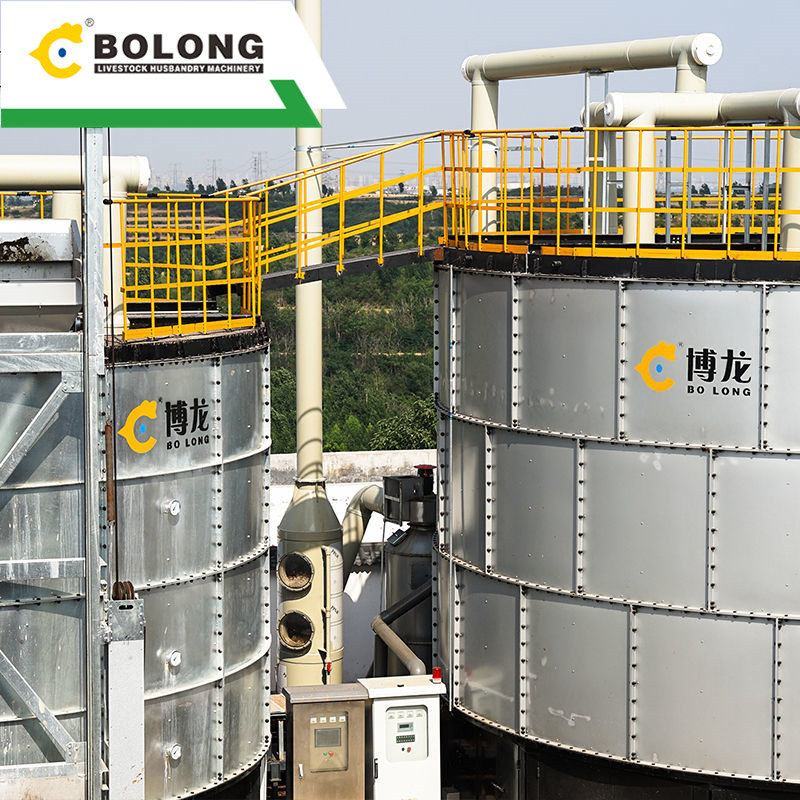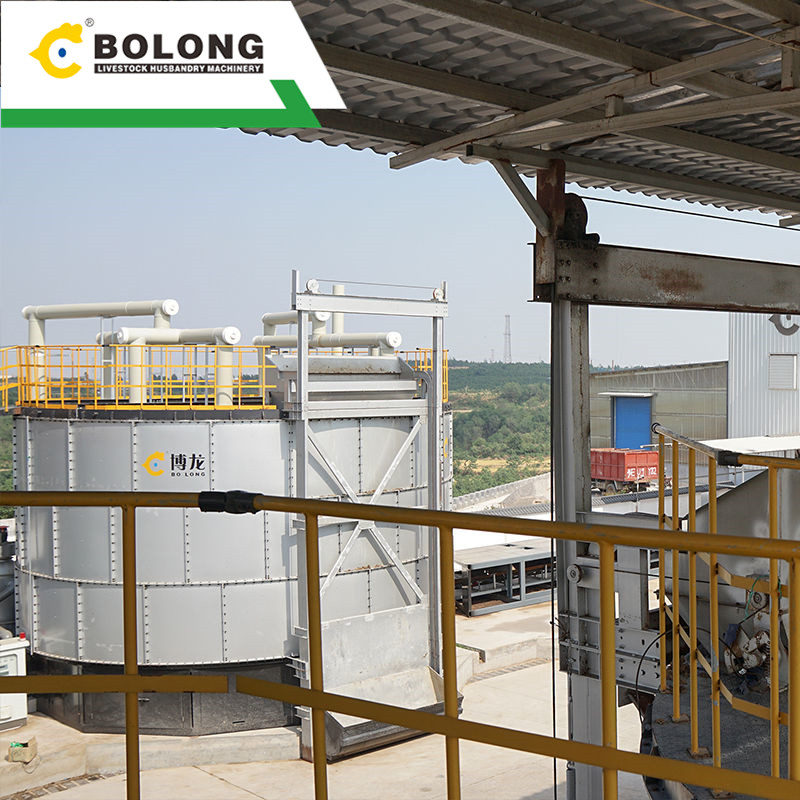China produces 3.8 billion tons of livestock and poultry manure every year, and the comprehensive utilization rate is less than 60%, which means that 1.52 billion tons of manure is wasted. Livestock and poultry manure is rich in nutrients such as nitrogen, phosphorus, potassium, as well as organic matter and trace elements, and can be turned into organic fertilizer under certain conditions. However, due to the differences in physical and chemical properties of livestock and poultry manure from different sources and types, this directly affects its stable application in agricultural matrices and limits the possibility of its large-scale application. Therefore, many scholars have studied manure fermentation vessels to maximize the harmless transformation of manure. Below we will introduce in detail the necessary conditions for aerobic fermentation in manure fermentation tanks.

Livestock and poultry manure has a high moisture content and may contain harmful microorganisms. Its nutrients mainly exist in organic or slow-release forms. Direct application to farmland may cause water, soil and air pollution, and may also spread pests and diseases and cause burns to plants. Therefore, livestock and poultry manure usually needs to be processed through biological transformation processes such as decomposition to ensure safe and effective use in agriculture. Aerobic composting is an effective method of processing livestock and poultry manure. These methods produce dry, fully decomposed and nutrient-rich substrate materials.
The use of appropriate biological treatment methods can not only promote the full decomposition of manure, but also effectively kill pathogenic microorganisms, significantly reduce the content of antibiotics and hormones, and reduce the activity of heavy metals, thereby significantly improving the utilization of livestock and poultry manure in agricultural matrix. safety. In addition, this treatment helps improve soil quality and provides better growing conditions for crops. Therefore, exploring and optimizing the biological treatment technology of livestock and poultry manure is of great significance to enhance its application value in sustainable agriculture.
There are many types of manure fermenters on the market. Here I give an example of Bolong’s high-temperature aerobic fermentation tank. Animal manure and carcasses with a water content of 50%-70% only need to be put into the fermentation tank through an automatic lifting hopper, and organic fertilizer can be produced through high-temperature aerobic fermentation in an average of seven days. Suitable humidity not only helps the growth and reproduction of microorganisms, but also improves fermentation efficiency and reduces energy consumption. Controlling the humidity within this range helps microorganisms decompose organic matter while avoiding anaerobic conditions caused by excessive moisture, thereby reducing the production of odorous gases.
In the process of livestock and poultry waste treatment, temperature control in the manure fermentation vessels is crucial. In order to achieve the best treatment effect, the temperature usually needs to be controlled between 55°C and 65°C. This temperature range is considered the most suitable for high-temperature aerobic fermentation processes because it can not only significantly increase the metabolic rate of microorganisms, but also promote the efficient decomposition of organic matter. More importantly, maintaining this temperature range can effectively kill most pathogenic bacteria and pests in livestock and poultry waste, thus ensuring the hygiene and safety of the treatment process. Therefore, maintaining an ideal temperature range during the manure fermentation process is crucial to improving fermentation efficiency and ensuring the quality of the final product.
Manure fermentation refers to the conversion of livestock and poultry excrement into efficient fertilizer through the action of microorganisms. In this process, proper oxygen supply is crucial, which not only ensures that the microorganisms can continue to be active, but also effectively reduces harmful gases that may be produced during the fermentation process, such as hydrogen sulfide and ammonia. On the contrary, if the oxygen supply is insufficient, it may cause the fermentation temperature to drop, the activity of microorganisms to weaken, and thus prolong the entire fermentation process. In addition, insufficient oxygen may also cause a large amount of unpleasant odors, affecting the overall fermentation effect.

In short, a successful fermentation process requires not only precise control of temperature, humidity and oxygen supply, but also careful monitoring of microbial activity and nutrient supply in the fermenter. By continuously optimizing these key production conditions, we can ensure the quality and efficiency of each batch of fermented products, thereby improving the economic benefits and environmental sustainability of the entire production process.